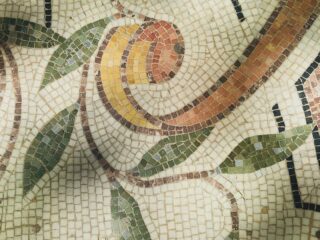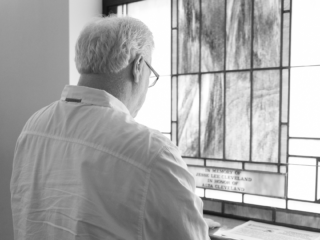Whenever people ask me about the biggest mistake I’ve ever made as a pastor, the answer is simple and embarrassing at the time.
I didn’t listen.
Now, my wife will tell you I don’t listen – present tense – but that’s another story.
When I arrived at Brentwood Baptist Church in 1991, I was so excited about the opportunities and potential of Brentwood Baptist Church. I couldn’t wait to unload my vision of what God was going to do. Needless to say, my ministry nearly crashed on takeoff. By God’s mercy, Brentwood Baptist Church was patient, merciful, gracious, and long-suffering. The fact that we survived those first few years is a testimony to the graciousness of the church, not to my skill and talent as a pastor.
I’m sure you noticed the keywords that gave away my mistakes. “My vision”, “telling everyone”, and “what God was going to do.”
And why shouldn’t I have led this way? After all, doesn’t the pastor bring the vision to the church? God tells the pastor and the pastor tells the people. That’s the way it goes, right?
Wrong.
The Spirit of God implanted God’s vision for this congregation when this church was born. In the hearts and minds of those men and women who gathered together over 50 years ago to start our church, God had planted a dream. Every congregation is pregnant with the vision God has given that church.
The members know that vision. They may not be able to articulate it, but they know it. They know the moments when God was doing something among them. They know the moments when they were their best selves. Stories they will tell over and over again and say, “That’s us.”
If I had been smart when I came to Brentwood, I would have sat down and had coffee with everyone and anyone who would come. I would have asked questions – lots of questions – and I would have listened to their answers.
“When was the last time you saw God move in this congregation?”
“Who are the people who have defined this church’s identity?”
“What were the dreams of those first members of our church?”
“What do you say to someone who wants to know the best thing about our church?”
I would have taken all of those stories and put them up on the wall. I would have looked at those stories until I saw the common themes running through all of them. From those themes, I would have crafted the mission and vision of our church.
If I had done that, I would have heard stories about church planting, generosity, excellent congregational care, and great worship services. Tacking those points on the history line of our church and pushing them into the future, I could have articulated the mission and vision in ways the church would have recognized and said, “That’s us.”
All you need to form a straight line are two points. Once you have those two points, you can pull the line as far as you want into the future.
With that in mind, I could have said to the church, “This is how God has worked in the past. This is who we are, and from those two points, we can see how God will work in our future.”
I would have saved myself two years of frustration, not to mention wear and tear on the church.
I would have done well to pay more attention to the story of Shiprah and Puah. You remember them, don’t you? They are the midwives of Exodus. You remember their story in Exodus. Pharaoh declared that every male Hebrew child should be killed upon birth. These midwives didn’t do it. When Pharaoh called on them to explain why they weren’t carrying out his orders, the midwives explained that the Hebrew women were so strong they were having their babies before the midwives could get there.
To this day, in Jewish circles, the midwives are celebrated as heroes of the Exodus story, equal with, if not greater than, Moses. Why? They were willing to defy Pharaoh, and they didn’t need a burning bush to do it.
As I have thought about these two brave ladies, I’ve noticed that they did two very important things. First, they wouldn’t let a foreign ruler dictate the future of God’s people. Second, they created a safe place for the dream of God to be born.
In my years of ministry I’ve noticed that, more and more, I serve in the role of a midwife. I didn’t place the vision in the person or the church, but I’m not going to let some “expert” or “trend” tell my people who they are, And, we’re going to create a holy space where God’s dream can be born in every person and in our congregation.
The church already has a vision and that vision, like the vision for every person, is as unique as they are. Our privilege as pastors is protecting that vision from harm and giving that vision a safe place to be born.
And like all children, those visions will look a lot like their parents: God the Father and Mother Church.









